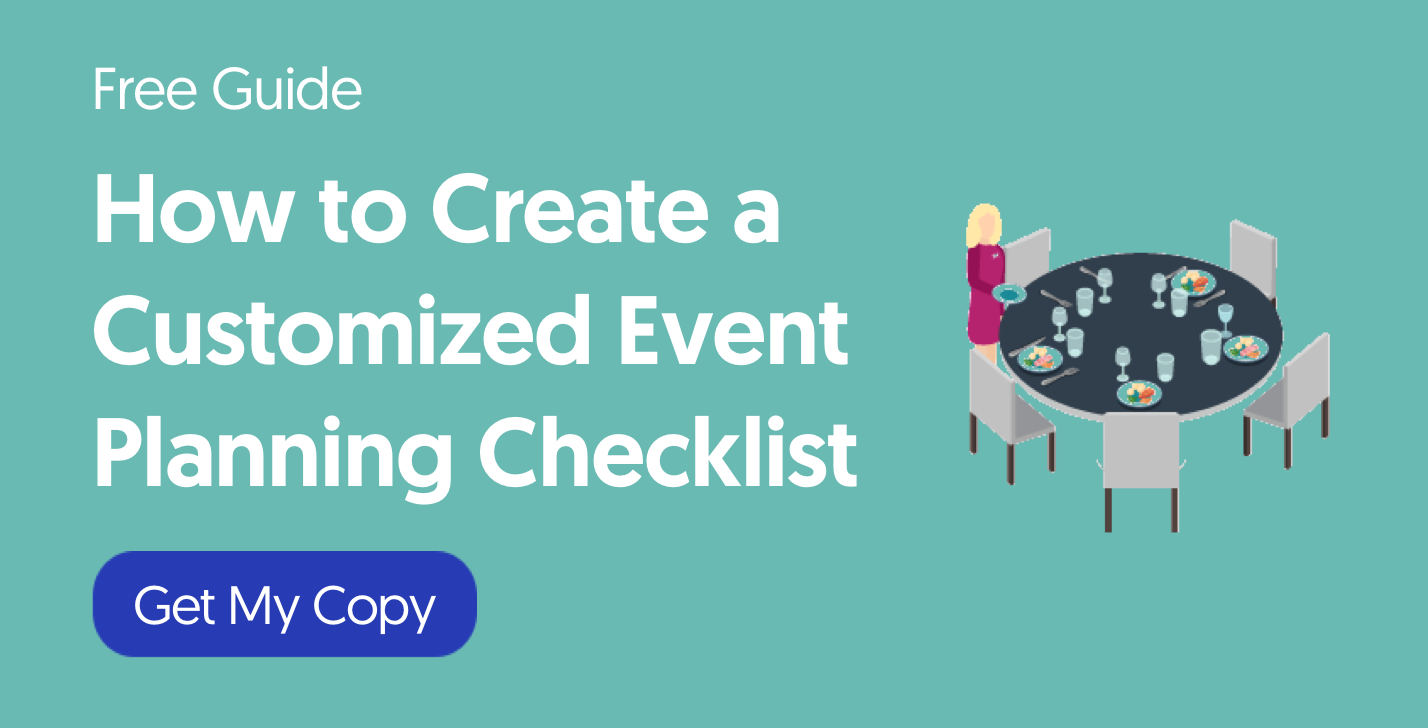
10 Secrets to Pick the Right Music for Events
From annual meetings to industry conferences to professional seminars”music matters. It sets the mood, cues up key moments, and energizes attendees. But too often, music gets pushed to the back burner of corporate event planning.
Learn why you need a thoughtful music strategy for your corporate events, and how to make music choices that improve the tempo and vibe of an event from the AM coffee break to the final after-party.
Here Are 10 Simple Steps to Selecting the Best Music for Your Event:
1. Understand the psychology of music.
Research shows that the psychological functions of listening to music include, among other things, mood regulation. The music you choose influences the event experience for every person and every moment of the event. Here are different ways music impacts the attendee experience:
- Music adds structure to your corporate event. From the lively music played at the opening to the slower tempo tune played at the closing farewell”people take action cues based on the music.
- Event background music helps people relax and feel comfortable as they mingle and network. It creates a welcoming atmosphere that relaxes the mind without overstimulating. Bonus: It fills in those awkward silences when there’s a break in the conversation.
- Music activates the memory, reward, and pleasure centers in the brain. This helps establish positive memories of the event, and even improves the absorption of critical take-aways.
2. Start planning your corporate event music from day one.
Put music on the agenda of your very first event brainstorming meeting, so your soundtrack is ˜in tune’ with the overall event. Handing your iPod playlist to the A/V tech and expecting music magic to happen on shuffle isn’t good enough”make your choices more tactical. Some early strategies:
- Choose a planning song for the event. Get together with your team on your and select a song that matches the event. You can play it at the start of meetings, and people can keep it in mind as they make other planning decisions.
- Assign a team member to music research. Depending on the scope of the event, they can start researching live musicians, DJs, playlists, or all three.
- Count up the event transitions. How often are attendees switching event spaces? Will guests shift focus from a keynote address to a Q&A session? Are small meetings switching from team-building to brainstorming? These are all opportunities to boost attendee focus and engagement with music.
3. Decide whether you’ll have live or recorded music.
There are pros and cons to both live and recorded music. Live music stirs emotions and has the power to bring people together with a positive shared experience. Hiring a professional DJ gives you access to their expertise and playlist. Recorded music is cost-effective, and the range of songs, music styles, and tempos is vast.
This decision will rest on your budget and your event goals. Digital playlists are the best option when designing events on a budget. If your event budget is on the higher end, it’s wise to incorporate a mix of both live and recorded music. Hire a band for evening events, small music groups for luncheons, and play recorded music for everything from walk-ons to light background music during workshops. This approach gives the event polish and makes attendees feel part of something special.
4. Choose music that’s in tune with your attendees.
The music at a conference for young professionals should be different than the playlist for a meeting of seasoned industry executives. The younger group will appreciate current mainstream hits, and possibly even independent music. But if your attendees are mostly over age 50, they may prefer music by The Beatles and Creedence Clearwater Revival.
In many cases, your company event or industry conference will draw attendees from a range of age groups. Work with your entertainers to create a custom playlist that covers a range of genres and musical periods that fit well with the cultural and geographic background of the audience. If you have the budget and an engaged social media following, survey your audience about their music genre preferences and include the top choices in your next conference.
Is your event city known for its regional music scene, fold that into your playlist, or hire a local group. (Think zydeco for a conference in New Orleans, or country music for an event in Nashville.)
When in doubt, rely on songs everyone can appreciate, such as:
- Sweet Caroline by Neil Diamond
- Happy by Pharell Williams
- Come Fly with Me by Frank Sinatra
- Viva la Vida by Coldplay
- Ain’t No Mountain High Enough by Marvin Gaye, Tammi Terrell
- Uptown Funk by Bruno Mars
- All Star by Smash Mouth
5. Speak to your band and DJ about a ˜do not play’ list.
There are certain popular songs and music genres that are not a good fit for different events”don’t assume your DJs or entertainment know this without some guidance. Create a list of songs and music styles to avoid during the event, and include this in your vendor contract to ensure your request is clear.
To avoid offensive or explicit lyrics, include clean in your playlist search, and remember that most popular club tracks are distracting during professional events.
6. Select music in harmony with the event goal and the time of day.
Heavy bass isn’t a good match for the early morning workshop when people are still on their first cup of coffee or tea. A string quartet at the after-party is probably too low-key. The best part about choosing your own music for events is the ability to switch up music styles based on the activity.
- Opening music for a conference should engage attendees and build energy for the rest of the event. Choose music that’s upbeat, even anthem-like, to set a tone of excitement. Some options include Brave by Sarah Bareilles, Get Ready by The Temptations, or Eye of the Tiger by Survivor.
- Early morning networking and team-building events benefit from light instrumental background music that sets an upbeat mood without going overboard.
- A live entertainment break can re-energize your attendees before the next seminar and provide a ˜wow’ experience. Bring in something out of the ordinary, such as a bluegrass band, marimba band, or a barbershop quartet.
- Have a slew of speakers in the mid-afternoon? Snap attendees out of the typical slump by introducing each one with walk-on music to excite the crowd. Try songs like Go Your Own Way by Fleetwood Mac, Baba O’Riley by The Who, or Blitzkrieg Bop by the Ramones.
- When it comes to a formal evening cocktail hour, choose upbeat classical music as people network and wind down from the events of the day. Consider a string quartet or a mariachi band.
- For sit-down dinners, explore dinner music playlists from Spotify or other streaming services. Keep the music set to a low volume during dinner so people can talk freely.
- Switch the music to upbeat dance tunes to get people on their feet for after-hours celebrations. A DJ is a good option here as they can read the crowd and vary the music based on audience participation.

7. Talk to the venue manager about music that works best in their space.
Your venue has a lot to do with how your guests experience the music. The sound of an acoustic duo is lost in a large auditorium but would sound perfect at an intimate VIP reception in a small room. Book a horn-heavy group for a large banquet hall rather than a small conference room where the sound would overpower attendees.
During a venue walkthrough or meetings with the venue manager, discuss what types of musical offerings work best in their space”and which don’t work. Also, make sure every space is equipped to accommodate live and recorded music. Search for videos from similar events at the venue; you may be able to hear whether the speakers are subpar or the stage needs a new location. This will give you time to work with the vendor on improvements, or bring in outside A/V vendors.
It’s always a good plan to find your venue first, then book your entertainment afterward when you have a firm grasp of the layout.
8. Create a floor plan for the band, DJ, and musicians playing at your event.
If you want to book a 12-piece swing band for an employee appreciation gala, you’ll need a large stage”which will subtract square footage from event space for attendees. You’ll also need a dance floor if you’re hiring a swing band, or directing the DJ to play dance music.
In general, DJs have a smaller footprint. Locate their equipment table setup to the side or front of the room within view of attendees”the DJ’s presence establishes an upbeat and playful tone.
If you’re booking a string quartet or live pianist to play background music, you’ll want them in a location where they can be seen and heard. A riser is a good option, as it elevates the musicians and sets them off slightly.
Create customized diagrams and floor plans so you know you have adequate space for performers, DJs, and attendees.
9. Familiarize yourself with licensing requirements for the music you play at a corporate event.
Corporate events have more strict music licensing requirements than social events. To play copyrighted music, you’ll need permission from music rights’ organizations such as BMI or ASCAP (two of the most common). Both organizations license songs to businesses and take care of paying royalties directly to the artists. The fees you pay will depend on the size of the event and the music you choose. Once licensed, you can play usually play them at various times, such as during an evening reception and a presenter walk-off.
With ˜royalty-free’ music, you pay a one-time fee for music that you can then play anytime and anywhere going forward. Download royalty-free music on sites such as Purple Planet or AudioJungle.
Songs in the public domain are free to use, and don’t require creator credit. Creative Commons is a public-use copyright license that gives free access to copyrighted materials, but requires permission and creator credit. You can also find a host of free songs on Net Labels or Audionautix. You’re not going to find Beyonce-level songs here, but you can discover music that matches your event.

10. Check out the most popular songs played at conferences, but use them wisely.
Chart-topping tunes can unify event groups, because most attendees know and enjoy these songs. But hits should be used wisely. Play them when the room is already buzzing with activity and conversation, or at a low volume during networking so people can catch the familiar melodies in the background. Popular conference songs include:
- Superstition by Stevie Wonder
- I’m a Believer by The Monkees
- All I Wanna Do by Sheryl Crow
- Locked Out Of Heaven by Bruno Mars
- Don’t Stop Believin’ by Journey
- You Make My Dreams by Hall & Oates
- Shake It Off by Taylor Swift
- Firework by Katy Perry
- Can’t Stop the Feeling! by Justin Timberlake
There are scores of playlists to choose from on a variety of streaming services like Spotify, Amazon Prime Music, Pandora, and more. Depending on the event, look for playlists with titles such as SFW, Music for the office, or Background music for meetings. Double-check all the tunes before hitting play, or use the songs as a jumping off for a customized playlist.
Well-chosen event music creates a dynamic experience, and can make your job as a planner much more manageable. Eye-openers in the morning, relaxing lunch-break music, afternoon slump beaters, and evening dance songs evoke the moods and engagement you want.
Want to learn more about music for corporate events?
1) Research and consider your audience
2) Pick music that resonates with your location
3) Be sure to consider what moods you want to evoke with music at different stages of the event
Consider your budget first. Live music is more expensive and impactful, but often has a narrower range of options than recorded music or a DJ. Consider working in a mix of live and recorded music to reap the benefits of both!
Now you’re ready to select the perfect music for your event!
Ready to book music vendors for your next event? Learn the 10 questions to ask before hiring a band or DJ. And remember to use our event planning software to achieve the perfect layout for any event.

